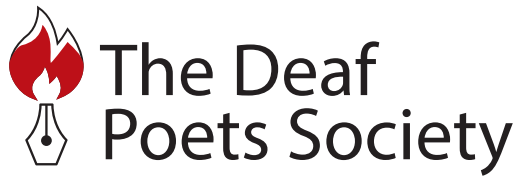Cyrée Jarelle Johnson
A Trip to Crip World: On Leah Lakshmi Piepzna-Samarasinha's Bodymap
This review was long in coming, because I spent much of the day it was due watching non-disabled adults cheer for a 14-year-old black disabled girl who has made the choice to end her life. Many of the non-disabled internet trolls typed many of the standard bearing mottoes of ableism, such as “If I was in constant pain, I would want to kill myself too,” and “Who are we to decide whether she can end her life?” These comments were beside the point; of course I value the right to death, but to encourage a disabled teen to kill herself only demonstrates the way that disabled life is undervalued. After a day full of hyper-visible violence against disabled people, I needed a trip to Crip World.
“crip world” is the third section of Leah Lakshmi Piepzna-Samarasinha’s book Bodymap, and it reads like a group of love poems. Some are romantic, some are fraught, but all depict the intimacy of disability, and the loneliness and loss of disabled life. But Bodymap is far from tragic. It paints a portrait of crippled body sovereignty in a world that would rather isolate us until we disappear.
Piepzna-Samarasinha explores these disappearances in the poem “dirty river girl,” which starts:
There’s an underground river flowing through every queer-of / colour community I’ve ever been a part of / and kissed. The underground river of kids who went away. / The girls and boys who got sick and tired, spent hours curled up / sleeping.
Ah, the forgotten. Oh, the invisible illness, the invisible people who roll, or walk, or limp, or move away. So little literature deals with our absence, which is part of how we stay hidden in plain sight. It's difficult to conceive of lack without illuminating the darkness to see what is not there. Without investigating interactions that are otherwise whispered. The poem goes deeper in the voice of the well or able-bodied person saying “Sick? you sick again? You still in bed, girl? It's three in the afternoon!”
Piepzna-Samarasinha moves headlong into the pain and shame of disabled life, the part that has little to do with the actuality of a sick body and everything to do with societal ableism. She deftly navigates the most stigmatized parts of the body itself through unbridled and honest portraits of disabled sex and love, both romantic and platonic. In “crip sex moments,” she uses her ink to draw attention to the magic that is cripple-on-cripple action, but doesn't shy away from meditating on its sacrifices: “I wanted you so bad I made my whole wardrobe and body product line fragrance-free in the hopes that when we made out I wouldn’t give you a seizure.” Perhaps those words would not betray the hope and possibility of new romance to an abled person. This book is not for them. The beauty of Bodymap is that it is written for us: crippled queers of color. In all our horror, in all our glory.
Although she highlights sick crippled experiences in ways that are loving and positive, Piepzna-Samarasinha sugarcoats nothing. In “this is what I know about crazy” she holds mentally ill folks accountable for our actions with her trademark SharkMom tough love: “the thing I wanted to say about crazy is: / 1. There is nothing wrong with you /2. it still sucks sometimes /3. you gotta figure out a way to love yourself anyway.” It's a complete departure from the constant blame that mentally ill folks are asked to accept for our differences. No one is let off the hook, no bad behavior is excused, but there is also no love lost. It is a new model of radical acceptance that eschews prose, that can only be expressed through poetry.
As a longtime reader of Piepzna-Samarasinha’s work, I value the way that her words move disabled bodies from the periphery of social justice conversations to the center. Many works regard themselves as “intersectional,” a term that emerged from Kimberle Crenshaw’s black feminist scholarship, and has become a buzzword that sometimes denotes tokenism and a “only one of each” mentality. Piepzna-Samarasinha’s work is overflowing at the places where identities meet: where brown and mixed meet femme, where slut meets crippled, where working class meets artist. These crossroads are fertile ground in Bodymap; by converging in this territory, she breaths poetry into a community too often isolated from queer spaces, and from radical identities.
The non-disabled world regards disability as horrible, abject. It is, to them, as Piepzna-Samarasinha writes in the closing poem of Bodymap “the worst thing in the world.” And sometimes, they are right, but not always. But there is beauty, there are blessings. Leah Lakshmi Piepzna-Samarasinha reminds us of this as the book shuts its eyes, reminds us “we’ve always come on boats. we’re going to keep coming. we/ know the waves and rough water./ bless the rough water and the small boats./ bless the worst thing.”
Author Photograph
[Image Description: A black person in glasses, dark pants, & a jean vest stands on a spiral staircase by a bridge & lake. Photo Credit: Nicole Myles, 2015.]
Author Biography
Cyrée Jarelle Johnson is a black non-binary essayist and poet living and working in Philadelphia, PA. Cyree's work explores femininity as resistance and rebellion, emerging femme thought, and community as a site of trauma. Their writing has appeared in digital and print outlets in the United States, Canada, and Europe including Feministing, Black Girl Dangerous, and most recently in the Spring 2016 issue of Bedfellows. Get in touch on their website cyreejarellejohnson.com

